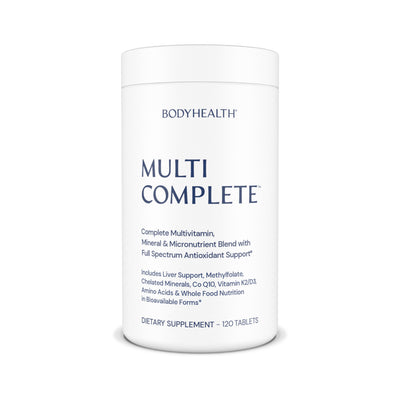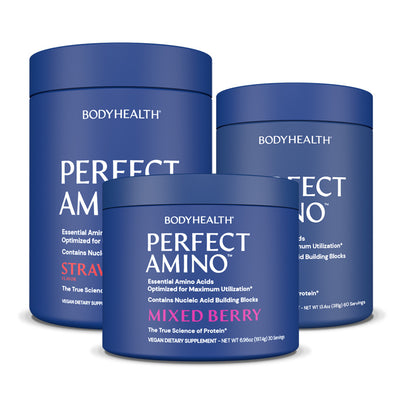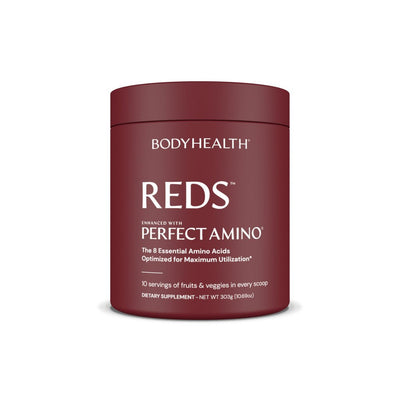Insulin Resistance, Low Energy & The Losing Battle With Fat
by Dr. David Minkoff October 14, 2021 5 min read

You’re eating, probably more and more over the years, but your cells are getting less and less of the food and more and more of it is being stored as fat.
This is the second article in a series on Insulin, Insulin Resistance, Sugar and Body Fat, as a well as an overall series on hormones, so stay tuned!
Alright, if you read the first article in this series then you understand that when sugar is in the blood stream the hormone Insulin is released to send it into the cells for energy, or to store it as energy in the muscles as something called Glycogen, or to convert it into fats known as Triglycerides — body fat.
And that while insulin is in the bloodstream almost no fat burning can take place.
But something can happen here when our diet is quite high in sugar over a long period of time, keeping our Insulin levels high for longer each day.
The cells build up a resistance to the Insulin. Meaning, when Insulin comes knocking, trying to give the sugar to the cell so it can make energy, the cell says “no” and closes its doors.
This only happens a little bit at first, but over time happens more and more often.
You see, we keep eating high amounts of sugar, which releases high amounts of Insulin. And this Insulin is then trying to stuff this sugar into the cells because it needs it out of the blood stream now so it doesn’t harm your blood vessels!
But after a while (years) the cells start getting fed up. They’re getting too much sugar. They can’t hold it all. They’re sick of Insulin knocking at their door at all hours of the night like some drunk ex-boyfriend.
So the next time Insulin comes knocking the cells are a bit hesitant to open the door.
They say: “Oh, we’ll let a little in, but no more.”
This then goes on for a while, the cells letting in less and less sugar.
But after a while longer, maybe many years, the cells get so fed up that they may start refusing to open the door at all… even when they need that sugar in order to make energy for themselves and the body.
This means sugar starts stacking up in the blood stream. And the more sugar in the blood, the more Insulin is released to shove it into the cells.
And if the cells aren’t taking in this sugar, then it’s going to go to fat — even if the cells actually need it.
And the less sugar going into the cells when they actually need it, the more tired you will be, because your cells don’t have what they need to make energy.
You’re eating, probably more and more over the years, but your cells are getting less and less of the food and more and more of it is being stored as fat.
This is Insulin resistance, the first step on that lonely road to type 2 diabetes.
But it’s a road many are on without even knowing it. Because this isn’t an exact point. It isn’t that one day you’re healthy and your cells respond immediately to Insulin, and the next day you’re Insulin resistant.
It’s a gradual process over years, and at least half the people in the US are somewhere on this path just because of the foods available to us these days.
And chances are, if you have trouble losing fat, there is some degree of Insulin resistance going on.
Don’t worry, it’s completely reversible naturally, in fact we help you through this in the Fat Loss & Lean Bulk Program.
And it takes much less time to reverse it than it does to create the situation in the first place — only weeks, or maybe months for someone with full Type 2 diabetes.
But it’s an important point to bring up. We want to lose fat, both for personal reasons, but also health reasons.
You see, this fat is also stored in our arteries, raising blood pressure and bringing on heart disease, as well as in our liver and kidneys, where it prevents the proper functioning of these organs and can bring on liver or kidney diseases.
If you’re Insulin resistant to whatever degree this makes it harder and harder to lose this fat.
The body is pumping in more and more Insulin to get the cells to take in the sugar. But when they won’t it’s not just that the Insulin then stores it as fat. It’s also that, while Insulin is present, almost no fat burning can take place.
So we’re forced to gain fat and prevented from losing it.
We need you Insulin-sensitive, meaning your cells react to Insulin’s knock and immediately open their doors to let the sugar in.
The more Insulin-sensitive you are, the less Insulin your body needs to pump into the blood stream to shove sugar into the cells and the sooner it clears the sugar out of the blood stream.
So we get less and less fat gain and it becomes easier and easier to lose the fat that is there — and keep it off.
Energy levels rise, mood rises, and muscle gains rise as well, though we’ll cover how that happens a little bit later.
And do you know how simple it is to do this? Very.
So simple it seems too simple.
If high levels of sugar brought about high levels of Insulin, and so Insulin resistance… we just cut down those high sugar levels and, after a couple weeks or months, your cells will become Insulin sensitive again.
It really is that simple.
“Simple?? Are you crazy??!” I hear you say.
Yes, simple.
Of course at the same time we’re doing this we’ll also be lowering your cravings for junk food and raising your body’s ability to use the food you put in it so your energy and mood are higher.
It all happens at the same time.
There will definitely be cravings at first, but those mostly go away after the first week, and only days 2-5 are the worst.
But if you follow the protocol we really do make that process as pain-free as can be.
But either way, we need to get these Insulin levels down and any Insulin resistance reversed if we want to lose fat and then continue to keep it off easily.
But there’s still a bit more to this, because some fruit or rice on a daily basis isn’t going to cause this.
Check out the next article here: Fast-Acting Sugars Vs Slow-Acting Sugars & The Ballooning Of A Nation
Perfect Amino Facebook VIP Group - Join now!Articles by Health Topic
Get “The Search for the Perfect Protein”
by Dr. David Minkoff
Signup for the BodyHealth Newsletter and get a FREE digital copy of "The Search for the Perfect Protien" by Dr. David Minkoff and discover the key to weight loss, depression, fatigue, insomnia, and osteoporosis!
*These statements have not been evaluated by the Food and Drug Administration. These products are not intended to diagnose, treat, cure, or prevent any disease.



